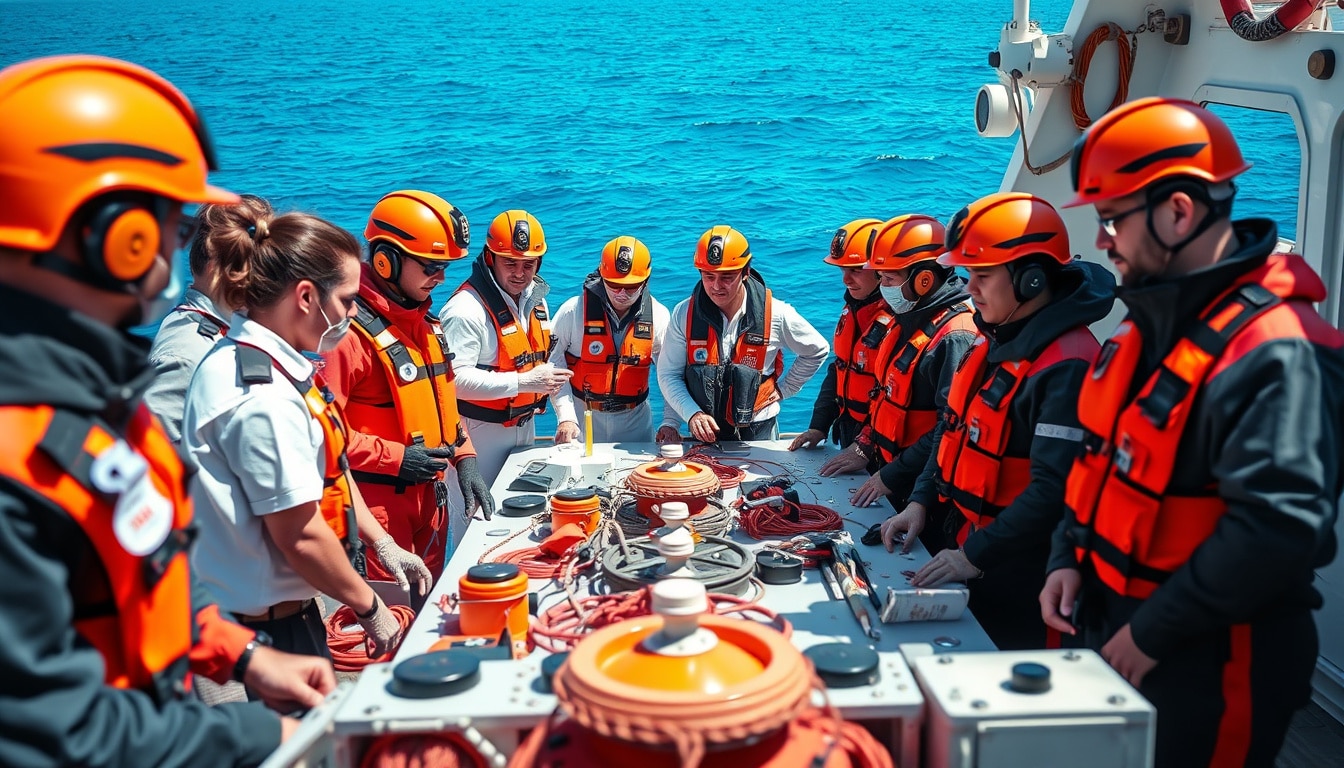In the maritime industry, the importance of regulatory compliance cannot be overstated. Central to ensuring that vessels adhere to international and local regulations is the Designated Person Ashore (DPA). The DPA plays a pivotal role in audit compliance, acting as the link between the ship management and regulatory bodies. Understanding the role of the DPA in audit compliance is crucial for shipping companies, as it not only ensures smooth operations but also safeguards against potential legal ramifications. This article delves into the DPA’s responsibilities, the challenges they face, and best practices they can implement to enhance audit readiness.
Learn more about our DPA courses!
Key Takeaways
- The Designated Person Ashore (DPA) plays a crucial role in ensuring maritime audit compliance.
- Key responsibilities of the DPA include overseeing safety management systems and maintaining regulatory standards.
- DPAs face challenges such as regulatory changes and maintaining communication between ship and shore.
- Best practices for DPAs to enhance audit readiness include regular training and thorough documentation processes.
- Effective collaboration and proactive planning are essential for DPAs to navigate compliance challenges successfully.
Understanding the Designated Person Ashore (DPA) Role
The role of the Designated Person Ashore (DPA) in audit compliance is pivotal in ensuring that maritime operations adhere to international safety and environmental standards. The DPA serves as the key liaison between the ship and shore management, facilitating the implementation of the International Safety Management (ISM) Code. This individual is responsible for overseeing safety management systems, ensuring that ships operate within established protocols and regulations, and effectively addressing any non-conformities that may arise during audits. By maintaining compliance with various audit requirements, the DPA not only enhances the safety and operational efficiency of the fleet but also strengthens the organization’s reputation with regulatory bodies and stakeholders. Understanding the DPA’s role is essential for anyone involved in maritime management, as their proactive engagement in audit processes significantly contributes to the overall safety culture within the maritime industry.
Key Responsibilities of the DPA in Audit Compliance
The Role of the Designated Person Ashore (DPA) in audit compliance is crucial for ensuring that maritime operations adhere to regulatory requirements and safety standards. One of the key responsibilities of the DPA is to act as a liaison between the ship’s crew and shore management, facilitating communication and ensuring that audit findings are effectively addressed. The DPA is responsible for overseeing the implementation of the company’s safety management system (SMS), which includes conducting regular audits, assessments, and reviews of operational practices. Additionally, the DPA must ensure that all documentation required for audit trails is meticulously maintained and easily accessible, thereby streamlining the compliance process. By monitoring fleet performance and participating in audits, the DPA helps identify areas for improvement, ensuring that the organization not only meets compliance standards but also fosters a culture of continuous improvement throughout its operations.
Learn more about our DPA courses!
Challenges Faced by DPAs in Maintaining Compliance
The role of the Designated Person Ashore (DPA) in audit compliance is crucial, as it serves as the bridge between maritime operations and regulatory standards. However, DPAs face numerous challenges in maintaining compliance, which can impact the effectiveness of their audits. One significant challenge is the constantly evolving regulatory landscape; the DPA must stay informed about new and changing regulations to ensure ongoing compliance. This can involve extensive research and adaptation of existing procedures, which can be time-consuming and requires a high level of expertise. Additionally, there is often a disconnect between onboard crew and shore management, making it difficult for DPAs to gather accurate information necessary for thorough audits. Another hurdle is the lack of effective communication channels, which can lead to misunderstandings between various stakeholders involved in compliance efforts. Finally, the increasing complexity of international shipping logistics introduces difficulties in ensuring that all operations adhere to regulations across different jurisdictions. Addressing these challenges is vital for DPAs to secure successful audit outcomes and maintain high compliance standards.
Best Practices for DPAs to Enhance Audit Readiness
The Role of the Designated Person Ashore (DPA) in Audit Compliance is pivotal for maritime organizations striving for audit readiness and operational excellence. To enhance audit preparedness, DPAs should adopt several best practices. First, maintaining clear communication between ship and shore personnel is vital; this ensures that all parties are aware of compliance expectations and changes in regulations. Secondly, regular training sessions for crew members about audit procedures and compliance standards can foster a culture of accountability and diligence. Additionally, implementing a robust documentation system that tracks all pertinent activities and compliance checks allows for easy retrieval during audits. Furthermore, conducting internal audits periodically can identify areas for improvement and ensure that the organization meets industry standards consistently. By embodying these best practices, DPAs can significantly contribute to a smoother audit process, ensuring that their organization not only complies with regulations but excels in its operational capabilities.






